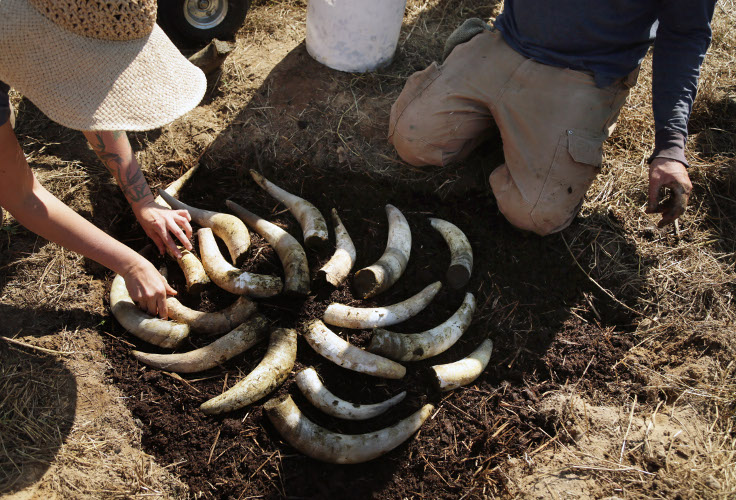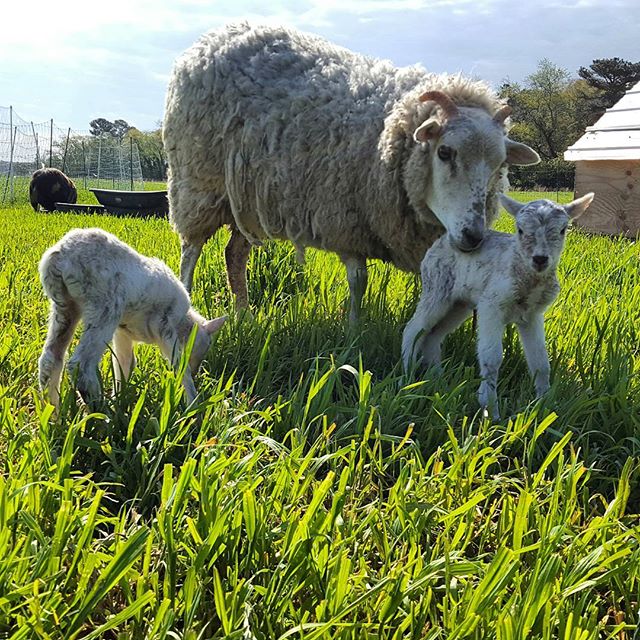

We began Perennial Roots Farm as a homestead project: two kids fresh out of college who were interested in reducing waste and providing enough food for our own needs. However, we soon found that we were growing more than we needed, so out of this surplus we began to find local outlets where we could sell our produce and from this, our farm continued to grow.
Our goals and practices are a synthesis of biodynamic rhythms and permaculture concepts, encouraging and fostering diversity in plants, animals and wildlife throughout the farm. We are committed to longterm sustainable practices: we plant more trees than we can use and seek to provide habitat for migratory birds in the midst of our wide range of plantings. We are concerned with perennial plants that will result in higher yields and decreasing labor as time progresses; our farm name embodies this impulse towards longevity and continuity.
In keeping with this longevity and continuity, we raise heritage animals on our farm specifically selected for their foraging traits. We raise only heritage breeds, and try to select breeds that are well adapted (or even bred) in our region. This includes our Delaware chickens, our Norfolk Black Spanish turkeys, and our Gulf Coast Native sheep. We also raise Mulefoot pigs and the endangered Kune Kune pigs from New Zealand. We raise Silver Fox Rabbits. We favor breeds that are favored by the Livestock Conservancy and the Slow Food Ark of Taste USA. We sell pedigreed breeding stock rabbits and pigs. We ferment whole grains for our animals in the warm months; this reduces stress by hydrating the feed, and provides some useful probiotics. All our grain is sourced from a local and certified organic farm. We do not use soy in our grain.
Our goal is to feed as little grain as possible to all our animals, instead encouraging a perennial grass based diet. All our animals are kept on pasture and rotated, allowing us to fertilize the soil, improving the land instead of depleting it. Our compost piles, perennial plants, trees, heritage animals and yes, even the weeds are all an integral part of this process. Nothing goes to waste here at Perennial Roots; whether it is the vegetable scraps that we turn into compost or the manure that the animals are constantly putting back into the soil, everything here is part of an intricate cycle that leads back to the fertility of the land itself.
Perennial Roots Farm is located in Accomack County whose rich history includes the fact that it was one of the richest counties in the country for a brief period of agricultural wealth. Accomack County today, however, is one of the poorest counties in Virginia, even though the Eastern Shore of Virginia continues to produce a huge percentage of Virginia’s agricultural products. Located on the Delmarva peninsula, a tiny and often forgotten strip of Virginia, Accomack is in a unique location within reasonable shipping distance from Washington, D.C., Hampton Roads, Philadelphia, and even New York City. The Delmarva Peninsula can and should be the breadbasket of the entire eastern seaboard. There is no reason that this area couldn’t supply real food while generating real wealth for farmers once more.
Perennial Roots is dedicated to supporting our local community, farmers, cooperation, buying and selling locally and improving our precious soil instead of depleting it. We believe that all of these little, important practices can help our community thrive again as it once did.
Size of farm: 40 acres, of which 25 is arable, 15 wooded; plus approx. 5 acres leased.
Diversity of produce and livestock: Heritage breed chickens, turkeys, ducks, geese, rabbits, sheep, and pigs, as well as heirloom vegetables, fruit trees, nut trees, berries, and mushrooms. We also grow medicinal herbs and make tinctures, balms, and teas. Additionally, we nurture our own kefir, sourdough, kombucha, and more. Finally, we are a certified bee friendly farm with several warre hives.

Apprenticeship Details: Apprentices are incorporated into every aspect of our daily farm life from morning chores to meals to lunch out after the farmers market. While they are here at Perennial Roots they live with us like family and when they finally leave, they leave as friends. We have generally found apprentices to be a rewarding experience overall and enjoy imparting our knowledge and love of our animals, the land and farming to them.
We expect apprentices to rise with dawn and work until lunch. Afternoons are usually free for our apprentices. After Sundays, and Saturdays (after chores) are usually off. If an apprentice wants the weekend off, with a little bit of notice, this is normally fine as well. During the height of the transplanting and growing season, we will gather again in the evenings to work for a couple hours.. Apprentices can expect to work 8 hour days on average; some days are longer, some days are shorter. We consider the inner development of the apprentice to be as important as outer knowhow. Leisure time is important for reflection and digestion. Apprentices must be able to lift and carry 50lbs for some distance. Most of the labor is not heavy, but there is a season for everything.
We have an extensive agriculture library and encourage require – certain books to be read, and read carefully. Communal meals are casual discussions of the day’s events and of the previous day’s learning. We also offer work day visits to other local farms in order to introduce our apprentices to a variety of farming practices.
Apprentices are provided with a stipend and ingredients from the the farm. Apprentices are expected to prepare their own meals.There is a large second house on the property to house apprentices, large enough for each apprentice to have his or her own room, but with shared bathrooms. Heating and air conditioning, and firewood provided. . We also encourage apprentices to tend their own plants and garden during their free time. Dinner is the responsibility of the apprentices, unless we work in the evening, then dinner is provided as well. It is encouraged that they work together and take turns cooking for each other.
Self-motivated apprentices looking for a stipend have spent this time coming up with useful ways to spend selfdirected time and are rewarded accordingly. If one of us has to go out of town and there is additional responsibility for apprentices, they can expect monetary compensation.
We require promptness in the morning and eagerness to return to work if there are evening tasks. During the hottest days, we break early for a siesta and return as the day cools to finish the day’s work. This sort of flexibility is required.
Mentor Farmers: Stewart Lundy and Natalie McGill
Address: 23345 Decormis Street, Accomac, VA 23301
Phone: 757-709-8761
